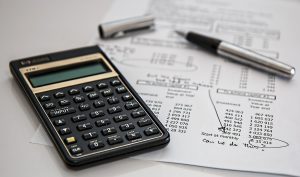 If you ask most people about the differences in accounting and bookkeeping, they will struggle to accurately describe the differences between these two processes. There is no denying that accountants and bookkeepers have common goals but their roles are different and they help your business in different stages of the financial cycle.
If you ask most people about the differences in accounting and bookkeeping, they will struggle to accurately describe the differences between these two processes. There is no denying that accountants and bookkeepers have common goals but their roles are different and they help your business in different stages of the financial cycle.
Bookkeeping is related to keeping a record of financial transactions and it’s administrative and transactional in nature. On the other hand, accounting tends to be much more subjective and is more geared towards providing business insights based on the information gleaned from bookkeeping.
Bookkeeping Functions
As described above, bookkeeping is concerned with keeping record of daily financial transactions. It is one of the key components required to build a strong financial foundation for a successful business.
Bookkeeping includes:
Recording all the financial transactions
Posting of all the debits and credits
Invoice production
Maintenance and balancing of historical accounts, general ledgers and subsidiaries
Completion of payroll
One of the main functions of Bould Bookkeeping is to maintain the general ledger. The general ledger is defined as the basic document where all the sales and expenses are recorded. The recording of these transactions is known as posting and higher number of sales lead to more frequent posting in the ledger. There are multiple ways to create a ledger including a computer spreadsheet, a specialised software or a lined sheet of paper.
A bookkeeping system can be complex but the complexity will depend on the number of transactions that are recorded on a daily, weekly, and monthly basis as well as the overall size of the business. Every single sale and purchase made by the business has to be posted in the ledger, and there are items that also require supporting documents. The business transactions for which supporting documents are needed are laid out by IRS on their website.
Accounting Functions
It is a high-level process where the information provided by the bookkeeper or business owner is analysed to produce useful financial models for the business. It won’t be wrong to say that accounting tends to be much more subjective as compared to bookkeeping as bookkeeping is largely transactional in nature.
Accounting includes:
Preparation of adjusting entries such as recording of expenses that have happened but have still not been recorded as part of the bookkeeping process
Preparation of financial statements of the company
Analysis of the costs of operations
Completion of income tax returns
Helping the business owner understand the impact of various financial decisions
Accounting helps in creating reports that bring together important financial indicators which provides business owners a much better understanding of the cash flow and actual profitability in the business. The accounting process is focused on making sense of the information recorded in the ledger to give a bigger picture of the business and reveal the path of the company’s progress. Business owners expect the accountants to help them with financial forecasting, strategic tax planning and tax filing.
Bookkeeper vs Accountant
At times, the accountant and bookkeeper performs the same job. However, the primary task of a bookkeeper is to record all the transactions and ensure financial organisation whereas the primary role of an accountant is to provide analysis and consultation, and they are generally more qualified on matters related to taxes.
Credentials Required for Bookkeepers
No formal education is typically needed to become a bookkeeper. Successful bookkeepers are sticklers for accuracy and are aware of the important things about key financial topics. In most cases, the small business owner or an accountant oversees the bookkeeper’s work. In short, a bookkeeper is not allowed to call themselves an accountant.
Credentials Required for Accountants
In order to become an accountant, a bachelor’s degree in accountancy is generally required. Individuals without specific degree in accounting are allowed to substitute it with an adequate finance degree.
Accountants are also allowed to get additional professional qualifications which is not the case with bookkeepers. For instance, accountants who have sufficient education and experience can get the title of Certified Public Accountant (CPA) which is one of the most common accounting designations. In order to become a CPA, the accountant is required to clear the Uniform Certified Public Accountant exam in addition to having experience as a professional accountant.
